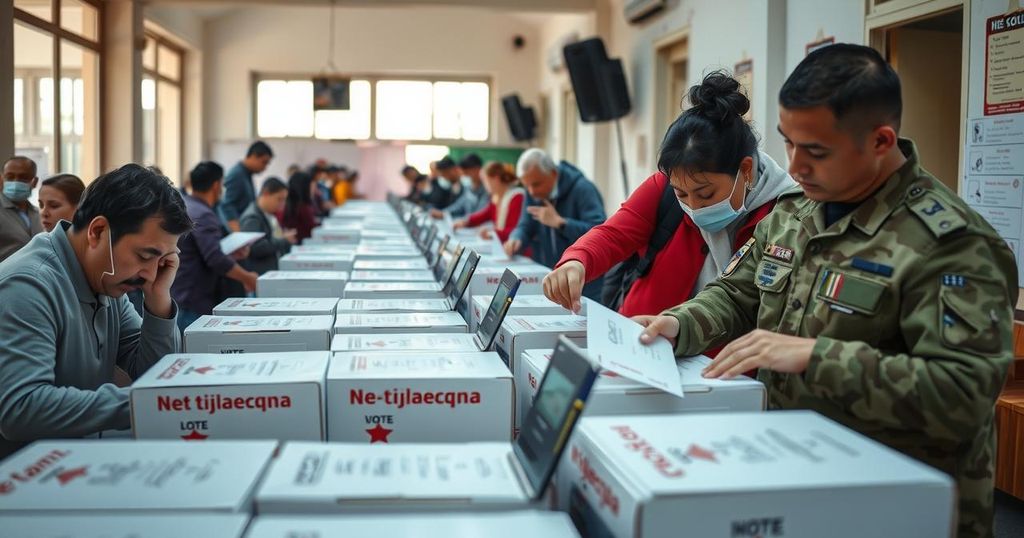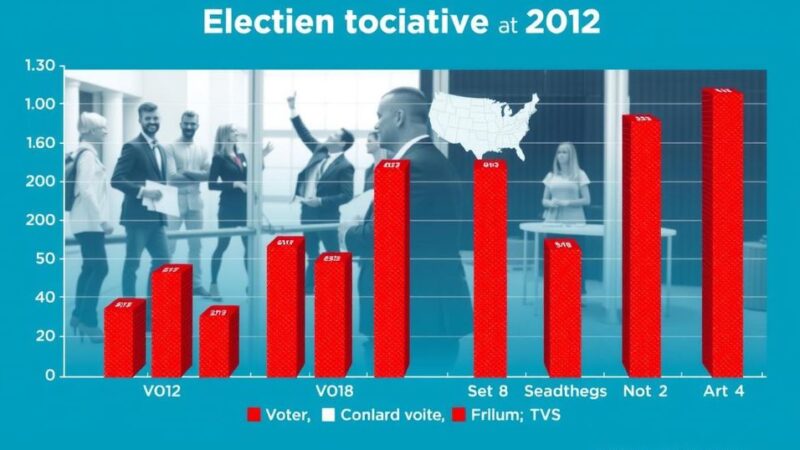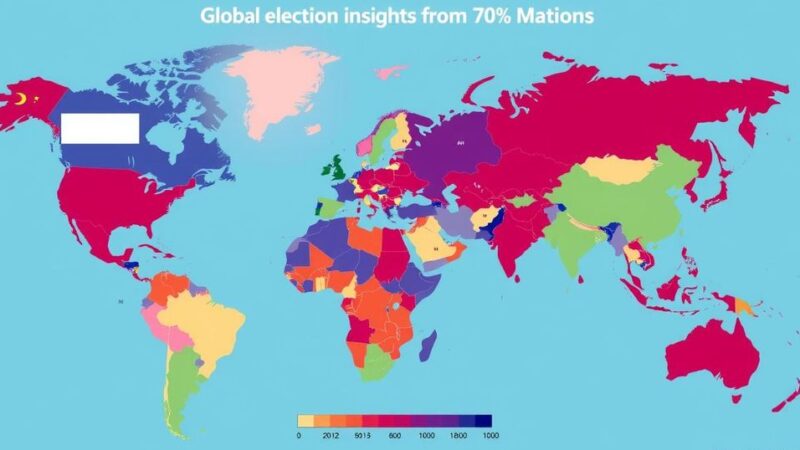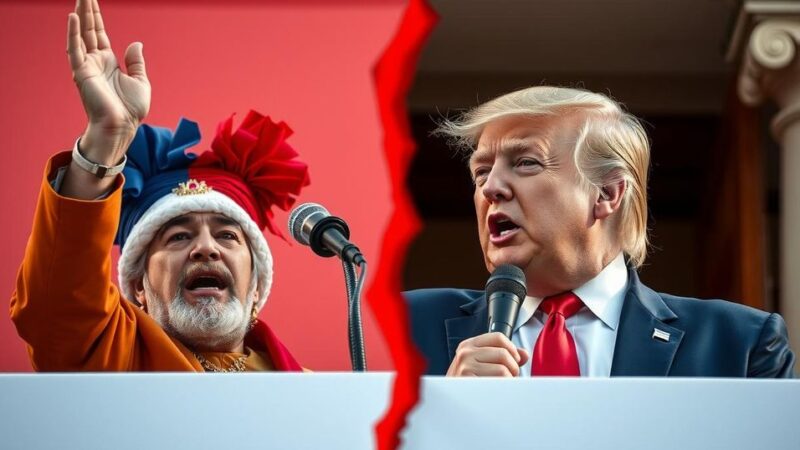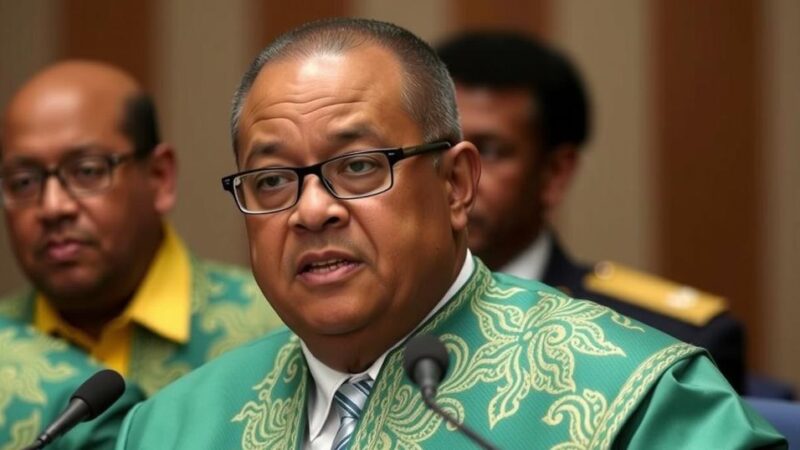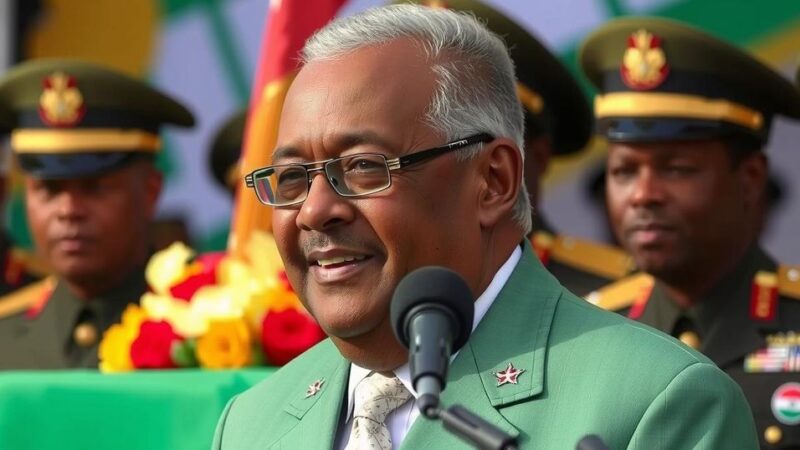Chad held a general election after three years of military rule, but low voter turnout was anticipated due to opposition calls for a boycott. The elections were framed as part of the transition towards democracy, amid allegations of predetermined outcomes and voter apathy. Challenges such as climate change, security issues, and public trust in the electoral process persist as the nation seeks stability.
On Sunday, Chad conducted a general election after enduring three years under military rule, a significant move, according to the government. The turnout was anticipated to be low as the opposition called for a boycott, stemming from assertions that the elections were predetermined. Reports indicated a 38 percent participation rate, while election officials in affluent districts attributed voter apathy to the cold weather. Opposition leader Succes Masra claimed that a substantial majority adhered to their call to abstain from voting. This boycott benefitted candidates favoring President Mahamat Idriss Deby Itno, who was installed by the military in 2021 and subsequently pursued an electoral legitimacy he achieved amid accusations of electoral fraud. Deby urged eligible voters to participate actively in the elections, asserting the day’s historical significance. However, criticisms emerged regarding the accuracy of the expected outcomes. Some citizens expressed skepticism about the viability of the electoral process, with a construction worker noting the lack of authentic voting. Meanwhile, the election management agency reported higher turnout rates among military personnel and nomads, although only 54 percent of the latter participated. The elections were monitored by international observers and spurred dialogue about local community needs, exacerbated by climate challenges impacting nomadic lifestyles. Voter integrity was called into question after reports surfaced of ballot disappearances, prompting calls for vigilance from opposition parties. Concurrently, the election unfolded amid violence from Boko Haram, a disrupted military relationship with France, and Chadian involvement in the Sudan conflict. The government has framed these elections as pivotal to Chad’s transition to democracy, following the lengthy reign of Deby’s father, who ruled for thirty years before his death in 2021.
Chad has faced a turbulent political landscape, marked by military rule and public discontent. Following the death of former president Idriss Deby in 2021, his son, Mahamat Idriss Deby Itno, assumed power amid promises of eventual democratic elections. The current elections were viewed as a crucial step towards stabilizing governance and addressing long-standing socio-economic issues. Opposition leaders have expressed skepticism about the electoral integrity, claiming that systemic corruption undermines genuine democratic processes.
The election in Chad represents a critical juncture in the country’s political trajectory, as it seeks to transition back to democratic governance after military rule. However, widespread voter apathy and opposition-led boycotts highlight significant challenges in rebuilding public trust in electoral processes. As the nation grapples with internal conflicts and socio-economic issues exacerbated by climate change, the government must address these concerns to establish a legitimate and effective democratic framework.
Original Source: www.rfi.fr

